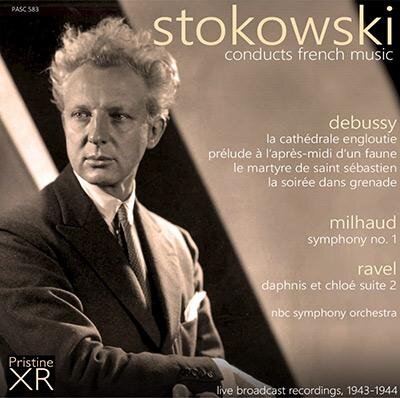One typically thinks of conductors from the 78 RPM era as having been conferred a halo of greatness which sometimes seem to glow brighter the worse the quality of their recordings get. But in the case of Georg Schnéevoigt, the reception of his posthumous legacy is, at best, “mixed.” If he is remembered at all, it is for his championing of the music of his compatriot Jean Sibelius, of whom he was a pioneering proponent on records. But unlike his colleague Robert Kajanus, whose recordings remain touchstones of Sibelian authenticity, posterity has been not as kind to Schnéevoigt’s shortcomings. His 1934 recording of Sibelius’ Symphony No. 4, for example, was privately criticized by the composer, leading HMV to withhold its commercial release. It was not hard to hear why it remained in the vaults for so long upon its eventual release over 40 years later: Simply put, it was a sloppy and ragged performance. (Small wonder then that HMV engaged Sir Thomas Beecham and his London Philharmonic for a remake which remains a classic.) Further tarnishing his reputation was the retrospective view of his helming of the Los Angeles Philharmonic. “The bland Finn,” was local critic Gilbert Brown’s pithy appraisal of Schnéevoigt’s abilities. It does not help that the conductor made few recordings.
So what to make of Pristine Classic’s latest release, comprising of an all-Sibelius program led by Schnéevoigt with the NBC Symphony? The concert was part of Finland’s contribution to the 1939 World’s Fair, the crowning moment of an entire “Sibelius Week,” with Schnéevoigt appearing in New York City as a musical ambassador. Miles Kastendieck, reviewing the concert the following day in the Brooklyn Daily Eagle, proclaimed it a “virtuoso performance of striking brilliance” in which Sibelius’ genius was “revealed in all its greatness.” Schnéevoigt’s Carnegie Hall audience seemed to agree, lavishing warm applause upon the performance. Whatever his faults may have been, on this evening at least Schnéevoigt was anything but “bland.”
His readings here are direct, unaffected, controlled, and powerfully inflected. Sibelius’ Symphony No. 2 opens up with an almost Stravinskian clarity and dryness, starkly prefiguring the comparatively more severe sound world of this score’s successor; although the big, muscular moments in this music (especially the recapitulation of the mighty theme in the finale) emerge all the more impressively for it. No less fine is Schnéevoigt’s interpretation of Sibelius’ Symphony No. 7, which surges forward as if in a single breath. Its restraint makes for telling contrast with Serge Koussevitzky’s BBC recording from around the same period (another Sibelian classic). Only the omission of the symphony’s opening minutes—the unfortunate result of NBC needing to accord space to its announcer—mars what would otherwise be an essential recording. Preceding the symphonies are two movements from what eventually became designated as part of the Lemminkäinen Suite. The movements—“Lemminkäinen and the Maidens of the Island” and “Lemminkäinen in Tuonela”—had only been recently published after having been withdrawn by the composer shortly after their completion. Schnéevoigt’s was their first American performance and while his reading has plenty of brawn, it is tempered by a sense of dignity. Opening the concert was a carefully proportioned and unsentimental interpretation of Finlandia.
Andrew Rose’s transfer sounds splendid over speakers. The balance of the mid-range and the definition of the treble are especially good.
Was Schnéevoigt unjustly maligned by posterity? This important release makes abundantly clear that at the very least his art deserves a second look from committed Sibelians.




